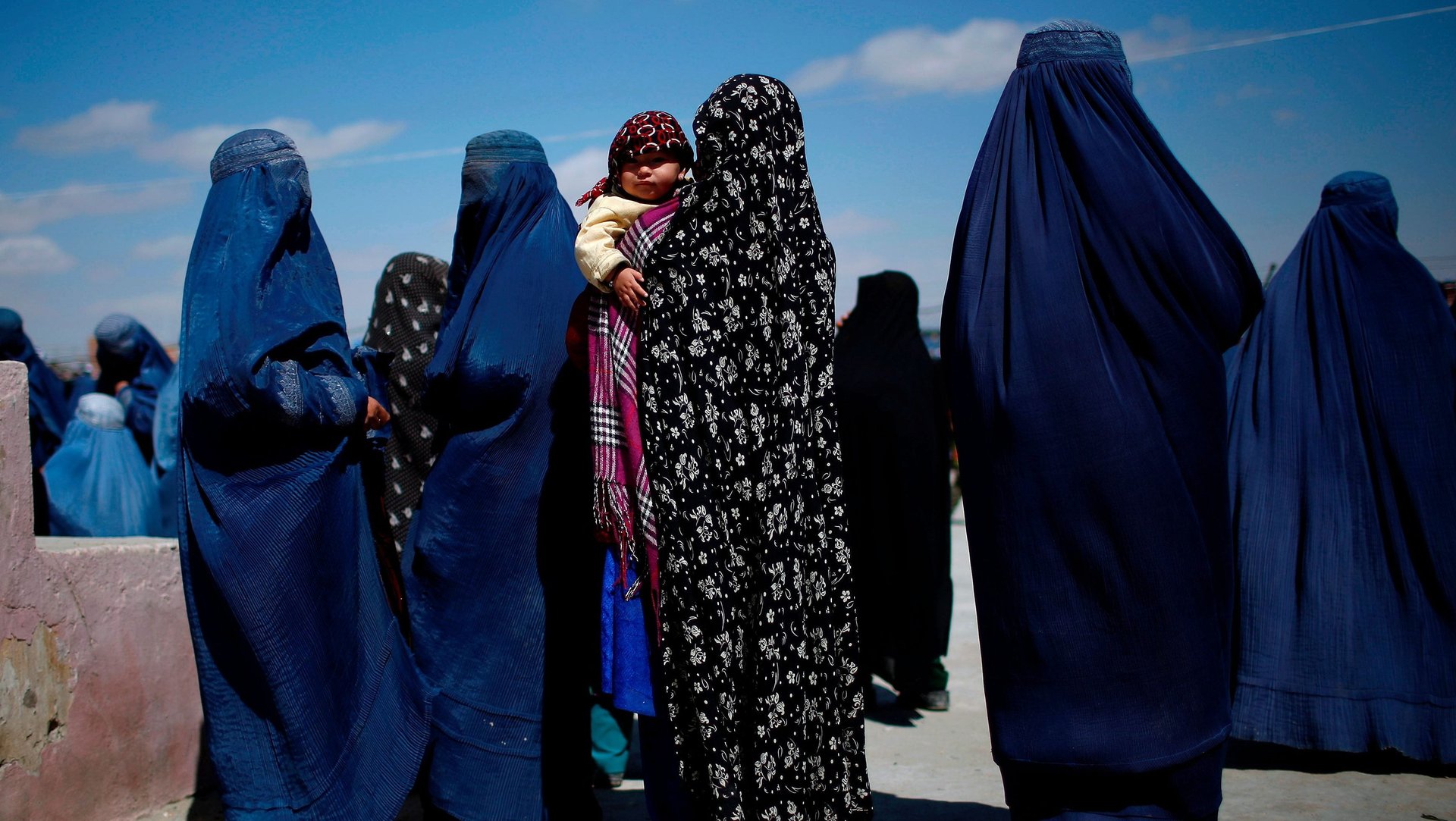Nobody is thinking about Afghan women in the US-Taliban peace talks
In 2001, the US used the Taliban’s mistreatment of women as one of its justifications to invade Afghanistan.


In 2001, the US used the Taliban’s mistreatment of women as one of its justifications to invade Afghanistan.
But in its haste to withdraw from the country now, the Trump administration is not doing enough to protect Afghan women once American troops are gone, human rights advocates say.
For six days last week, US representatives sat down with the Taliban in Doha, Qatar to hammer out a peace agreement. Though they didn’t reach a deal, the talks were deemed successful, and for the first time in 17 years, there are signs the conflict may be coming to an end.
“Our priority is to end the war in Afghanistan, and to ensure that there is never a base for terrorism in Afghanistan again,” said White House press secretary Sarah Huckabee Sanders in a press conference on Jan. 28. Other US demands include “an intra-Afghan dialogue and comprehensive ceasefire,” according to a State Department spokesperson.
Notably absent from the US’s priorities: safeguards for women’s rights.
“Everybody seems hopeful about this [peace] development, but there is a lot to worry about,” says Heather Barr, who spent several years in Afghanistan working on women’s rights with Human Rights Watch.
Political settlement or surrender?
The Taliban regime officially fell in December 2001, leading to a new constitution and a democratic government, but there are still pockets of active Taliban resistance in Afghanistan. The US is unlikely to defeat them, especially after Donald Trump’s decision in December to withdraw nearly half of the US troops in the country. So, rather than a military end to its war with the Taliban, the US is aiming for a “negotiated political settlement,” in the words of the State Department.
While the details of the arrangement are still unclear, the Taliban would likely be allowed some presence in Afghanistan’s political life as a trade-off for the ceasefire. Once in positions of power, its members might demand a rollback of women’s rights, or limit female participation in politics. “A power-sharing deal definitely means you are bringing into the fold individuals who fundamentally disagree with some human rights and the provisions of the constitution that say men and women are equal,” says Barr.
She sees the US’s negotiations with the Taliban as a rushed attempt to figure out a graceful exit strategy to accommodate Trump’s impatience to leave. Her opinion is echoed by many, including former US ambassador to Afghanistan Ryan Crocker. In a Washington Post op-ed this week, he likened the talks to those to end the Vietnam war. “Then, as now, it was clear that by going to the table we were surrendering; we were just negotiating the terms of our surrender,” he wrote.
Biggest losers
The limitation of women’s freedom was a hallmark of the Taliban regime. Women were not allowed to show their face in public, be out without a relative, speak to strangers, or even raise their voice. “[The Taliban] was one of the most oppressive regimes in history,” says Megan Corrado, advocacy director at Women for Afghan Women, a non-profit that promotes women’s rights in Afghanistan. “No one has suffered from it more than women.”
Though Afghanistan remains a terrible place to be a woman—in 2018, only Syria fared worse in women’s safety and inclusion—much progress has been made since 2001. Millions of girls have been able to attend school; women have gained access to high-level professional positions, and filled important political seats.
Further, the country’s constitution includes gender equality provisions, and though they have yet to be enforced in a robust manner, they are an important stepping stone.
While the US has historically made the advancement women’s rights a top goal in Afghanistan, mentions of women have been conspicuously absent during its negotiations with the Taliban. It doesn’t help that the Doha talks don’t include any representatives from the Afghan government. Without them, the discussions only take into account US and Taliban interests, not the Afghan people’s, says Corrado.
“In order for the deal to preserve the progress that women have achieved so far, it is important that they are involved in the negotiations, together with their country’s government,” she says.